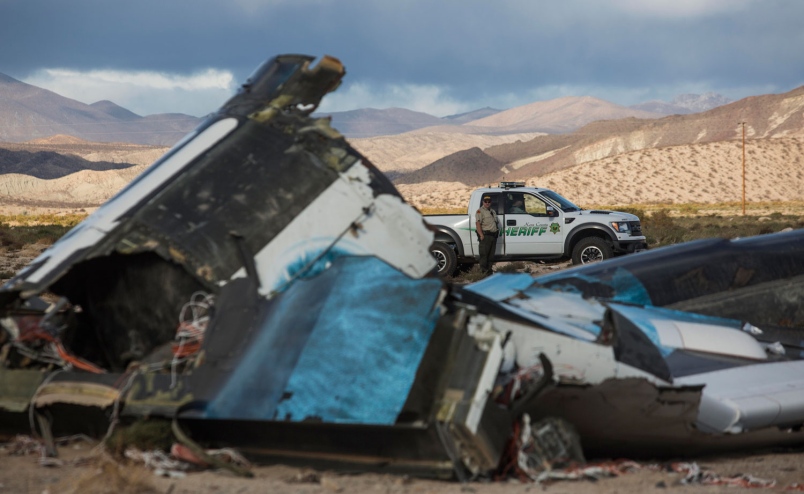Pioneering and vacationing in the same wilderness is always a dicey proposition, since trailblazers expect hardships and danger while pleasure seekers do not–and the stakes have never been higher than in outer space. It would seem to make sense to limit the peril to those actually endeavoring to colonize these new worlds, a very important mission, and to leave the sightseeing for a time in the future. But it can be argued that space tourism will normalize and improve what may be a species-saving process. From Andrew Edgecliffe-Johnson’s Financial Times interview with Richard Branson, conducted just prior to the Virgin Galactic disaster:
“Our lunch falls in the middle of a typical Branson week. It began in Montreal with a meeting of his charitable foundation, Virgin Unite, then moved to Toronto for the launch of a Virgin Mobile training programme for homeless Canadians. He is in New York to hold a press conference for the Global Commission on Drug Policy, a group including nine former world leaders that favours decriminalising drug use.
Next he will be off to Washington for breakfast with Republican senator Rand Paul, before heading for a spin in a ‘centrifuge gondola’ near Philadelphia to prepare his body for the stresses of a long-awaited suborbital space flight with Virgin Galactic, which he dubs ‘the world’s first commercial spaceline.’ Somewhere between these public appearances, he will also find time to run the eclectic collection of airlines, train operators, gyms, mobile phone businesses, radio stations, music festivals and banks that have built a fortune Forbes estimates at $5bn.
In person, Branson is an almost shy showman. He has barely made eye contact from under his sweep of silver-gold hair. Wearing a dark blazer with two shirt buttons undone and cuffs open at the wrist, he plays with a pen while he talks about his next adventure.
He has performed his fair share of stomach-turning exploits in hot-air balloons, high-speed boats and the like. But, at 64, he knows that going into space will put different strains on his frame. ‘There’s eight seconds where you go from nought to 3,500mph,’ he says. At 4.5 G-force, ‘you’re going to feel it on your body.’
His dream of experiencing ‘the overview effect’ that astronauts talk of when they see the planet from afar has been delayed by about seven years, but his best guess now is that in March next year he and his son Sam, 29, will lift off from the ‘spaceport’ in New Mexico.”


